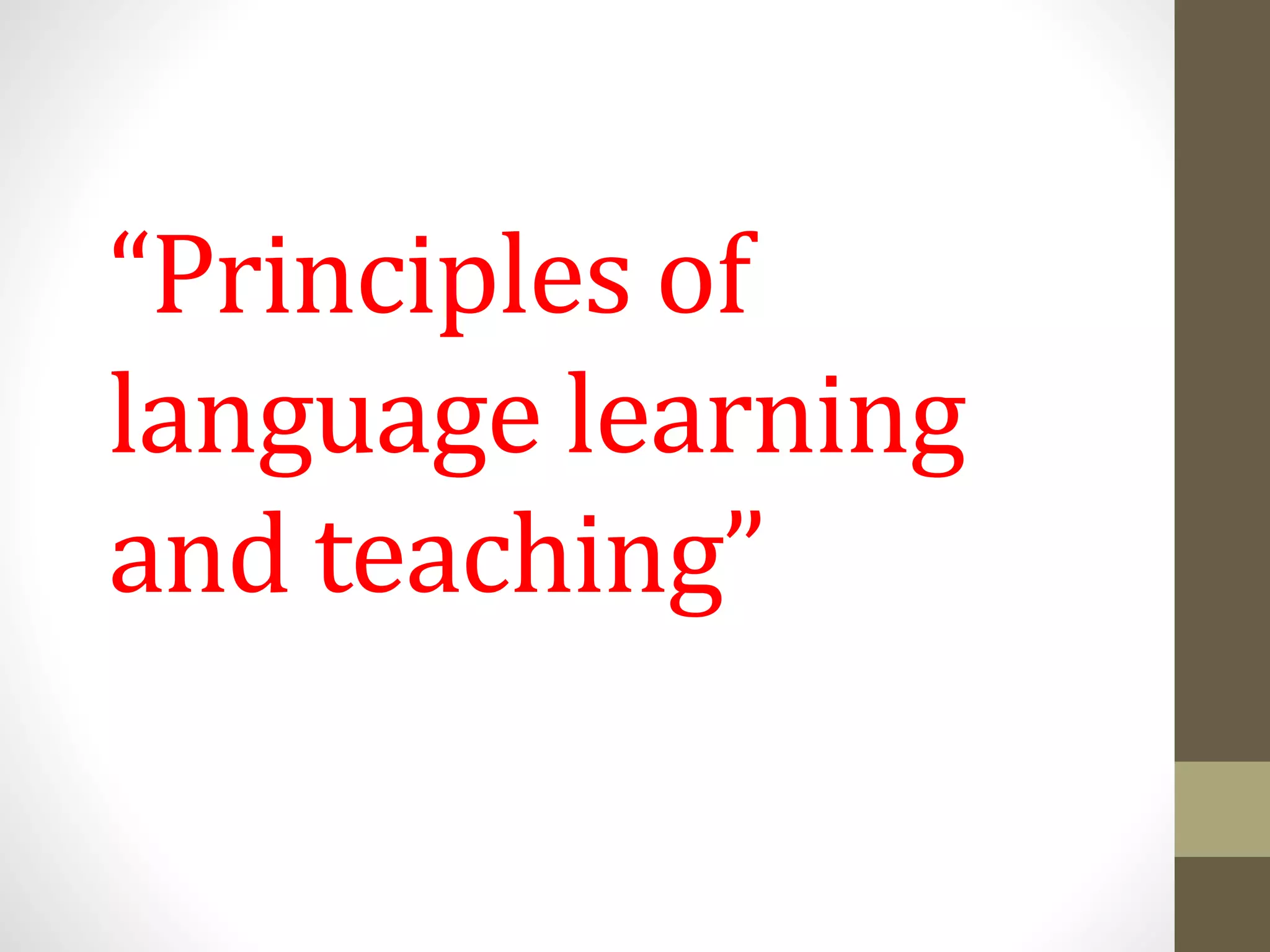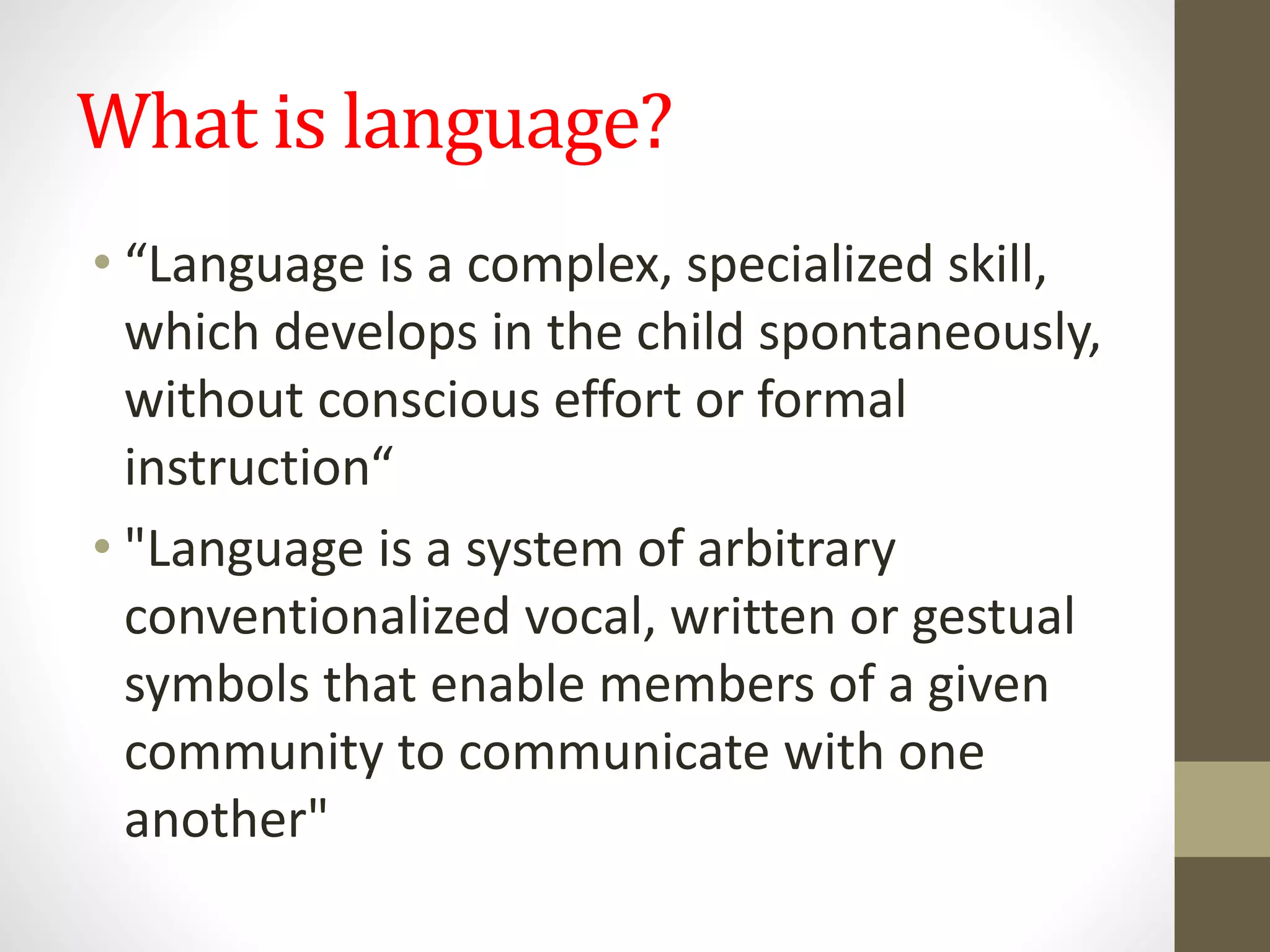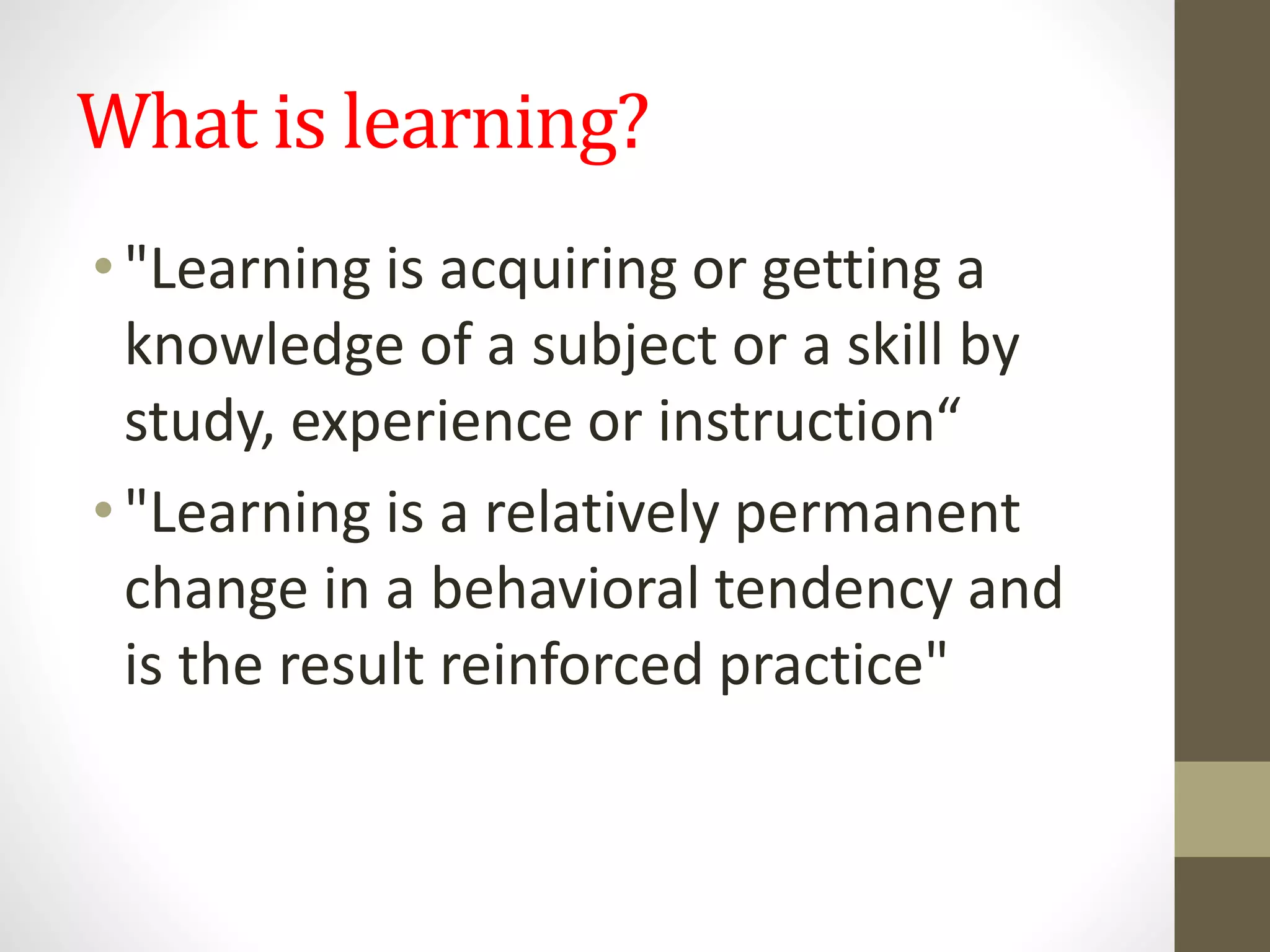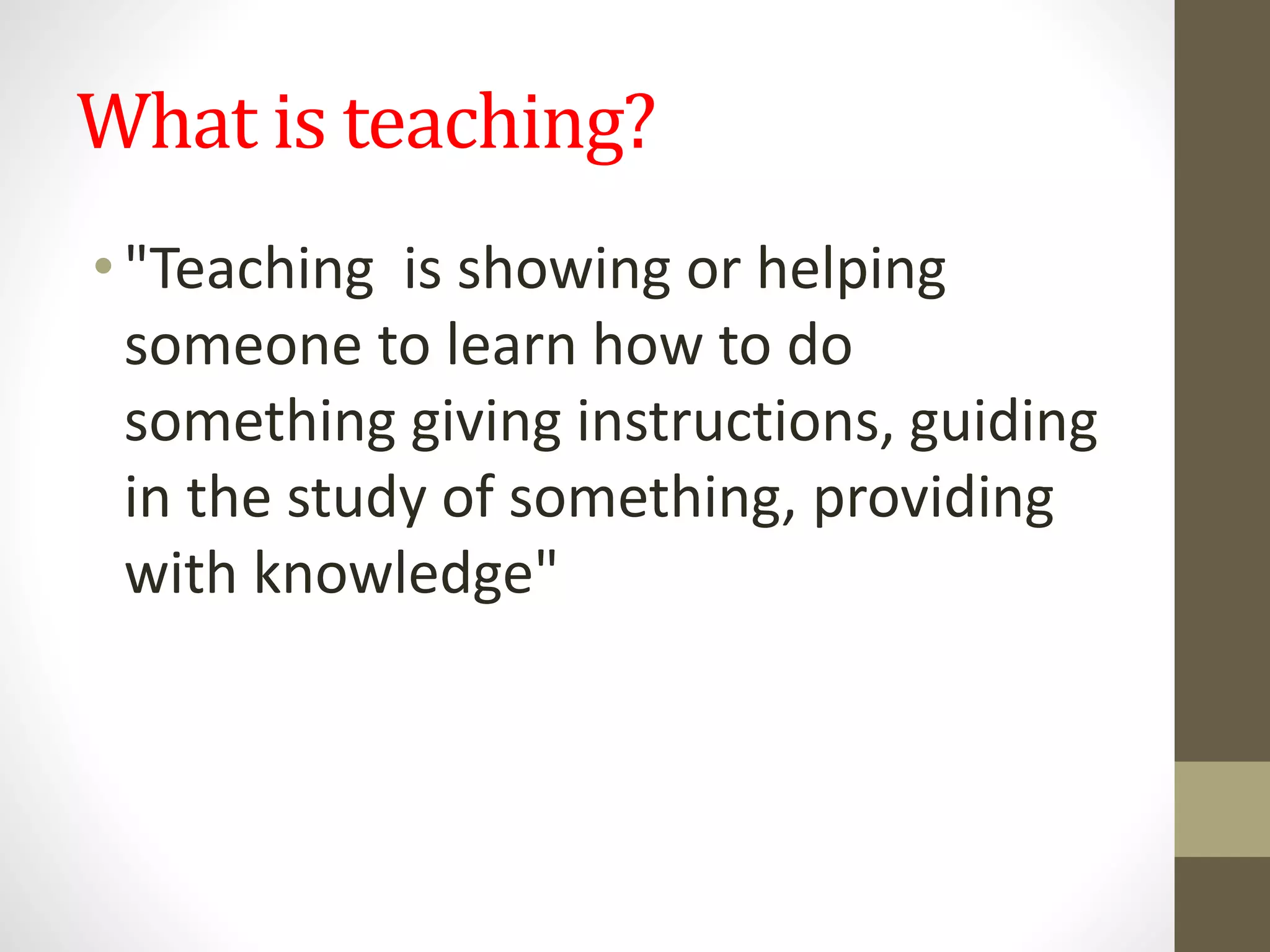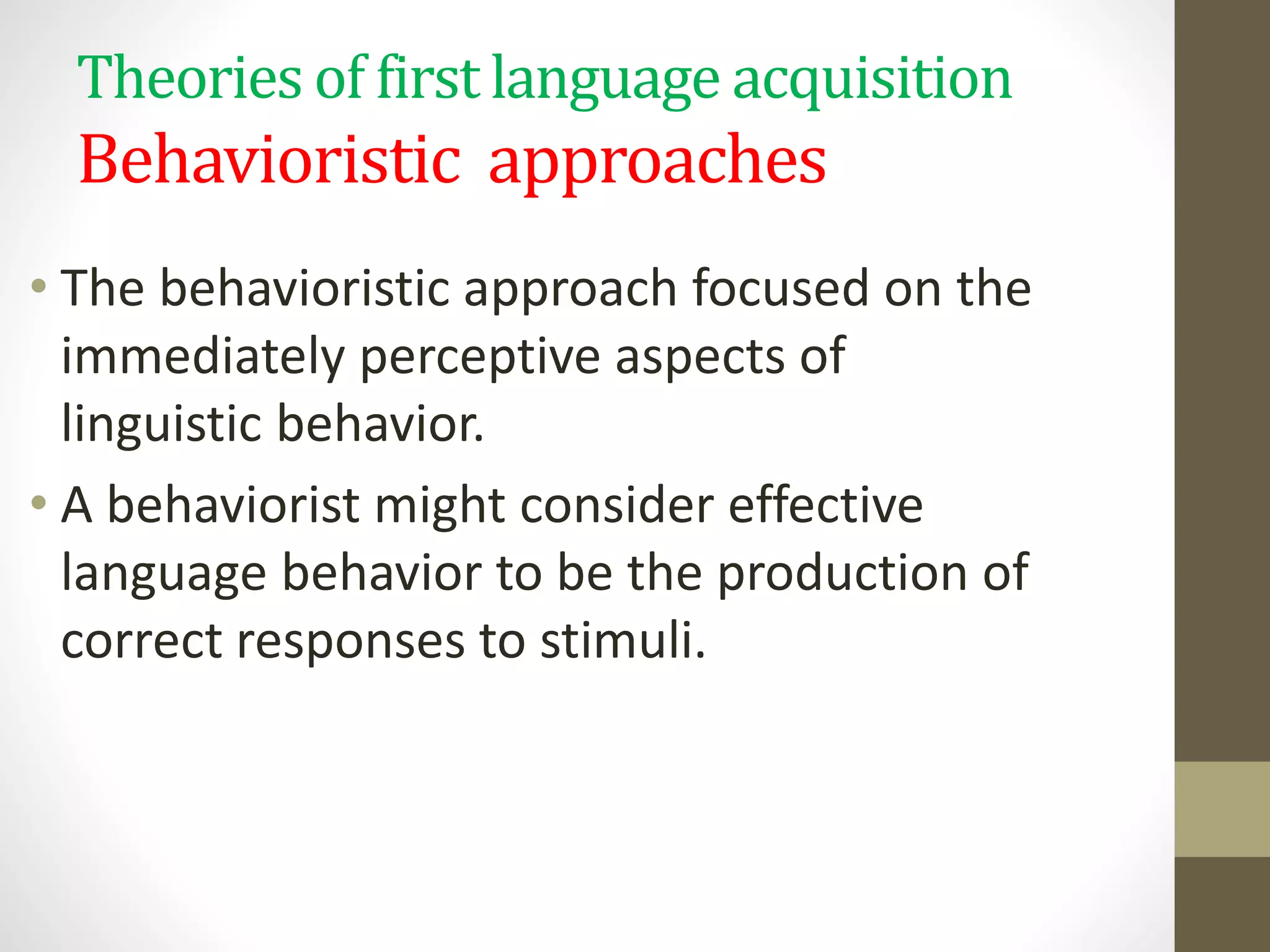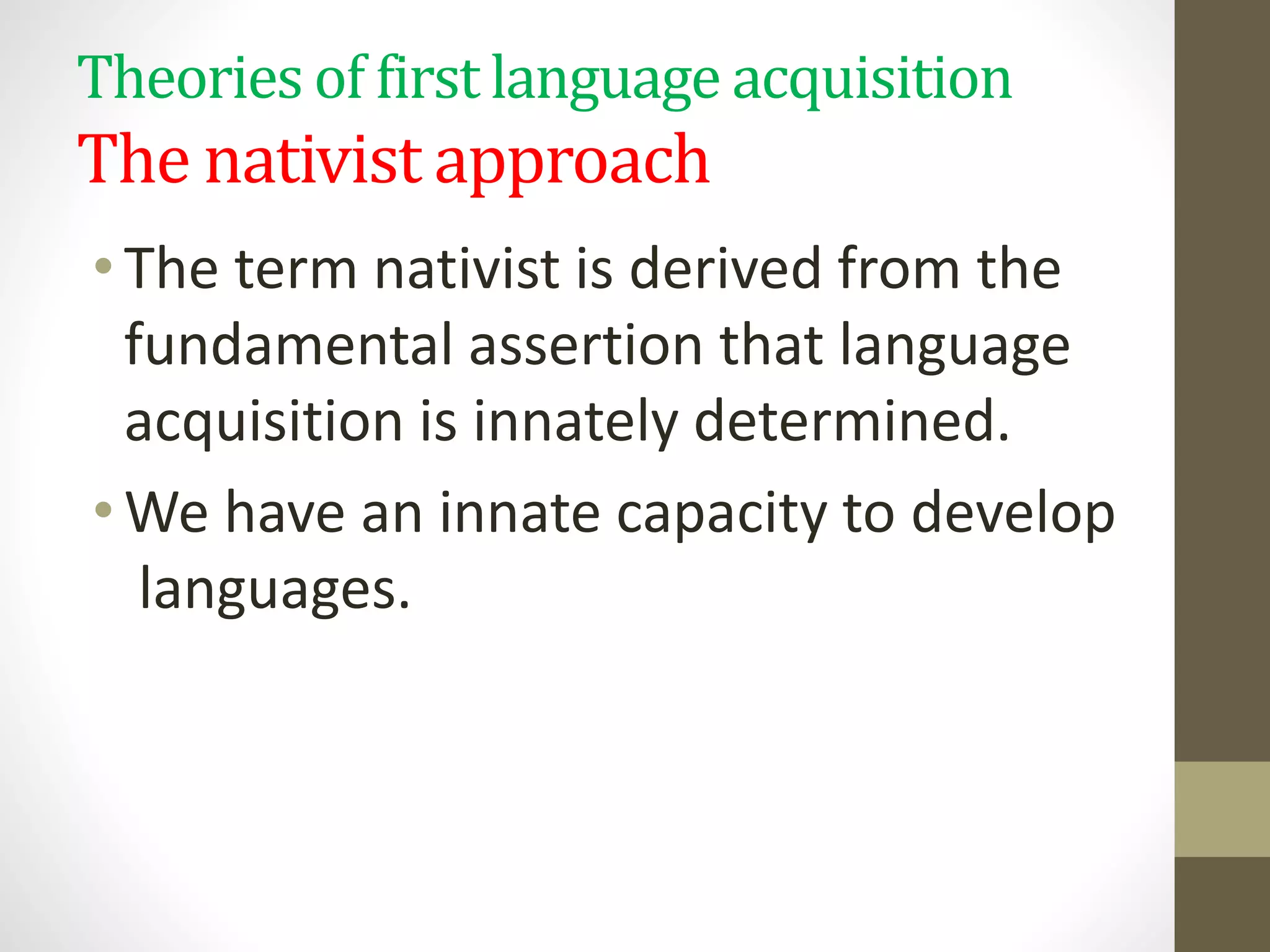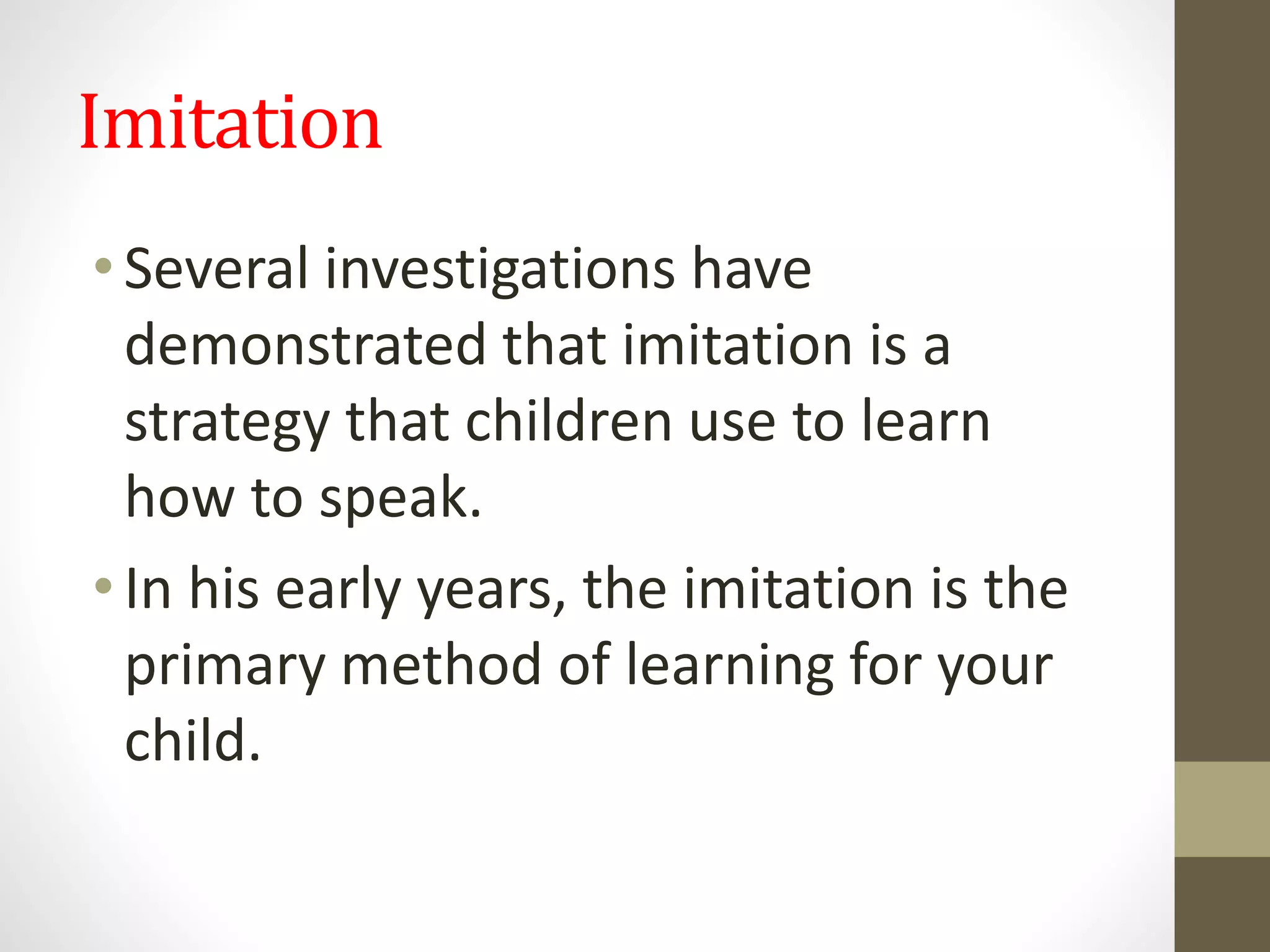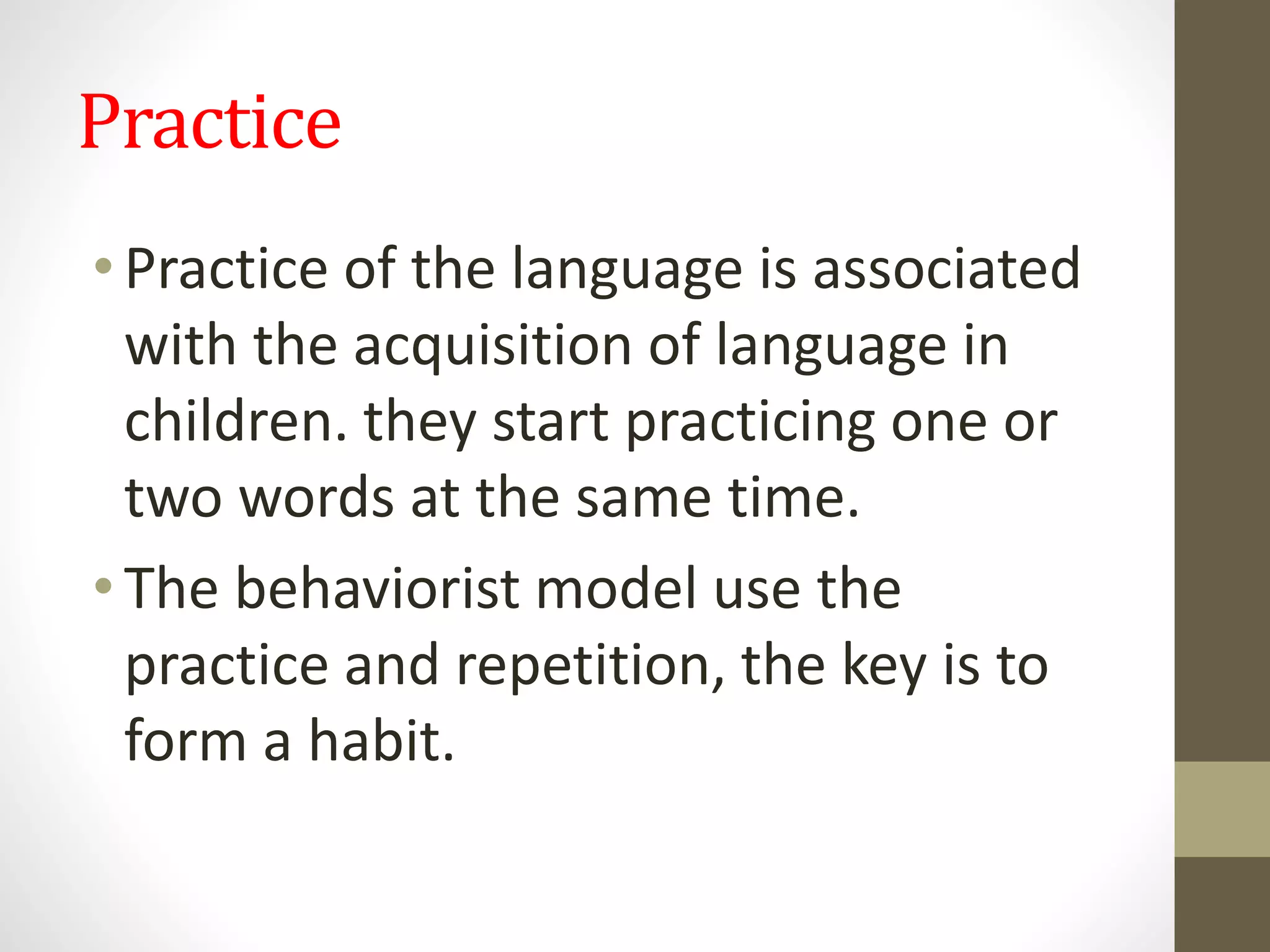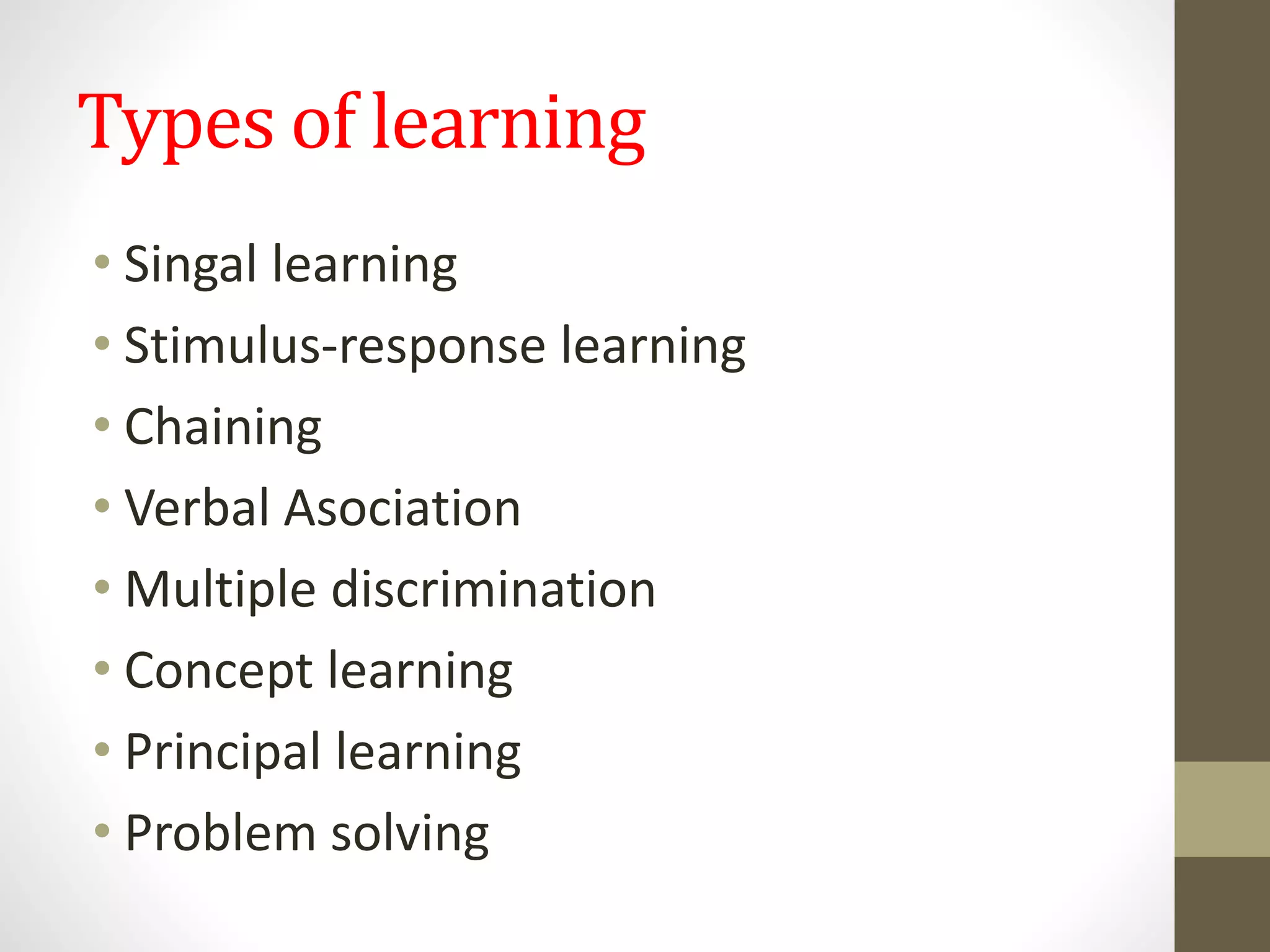This document discusses key concepts relating to language learning and teaching including definitions of language, learning, and teaching. It also covers schools of thought in second language acquisition such as structuralism and constructivism. Theories of first language acquisition like behaviorism, nativism, and functional approaches are examined. The concepts of universal grammar, imitation, practice, input, and the critical period hypothesis are defined. Finally, it distinguishes between first and second language, bilingualism, types of learning, inductive and deductive reasoning.
